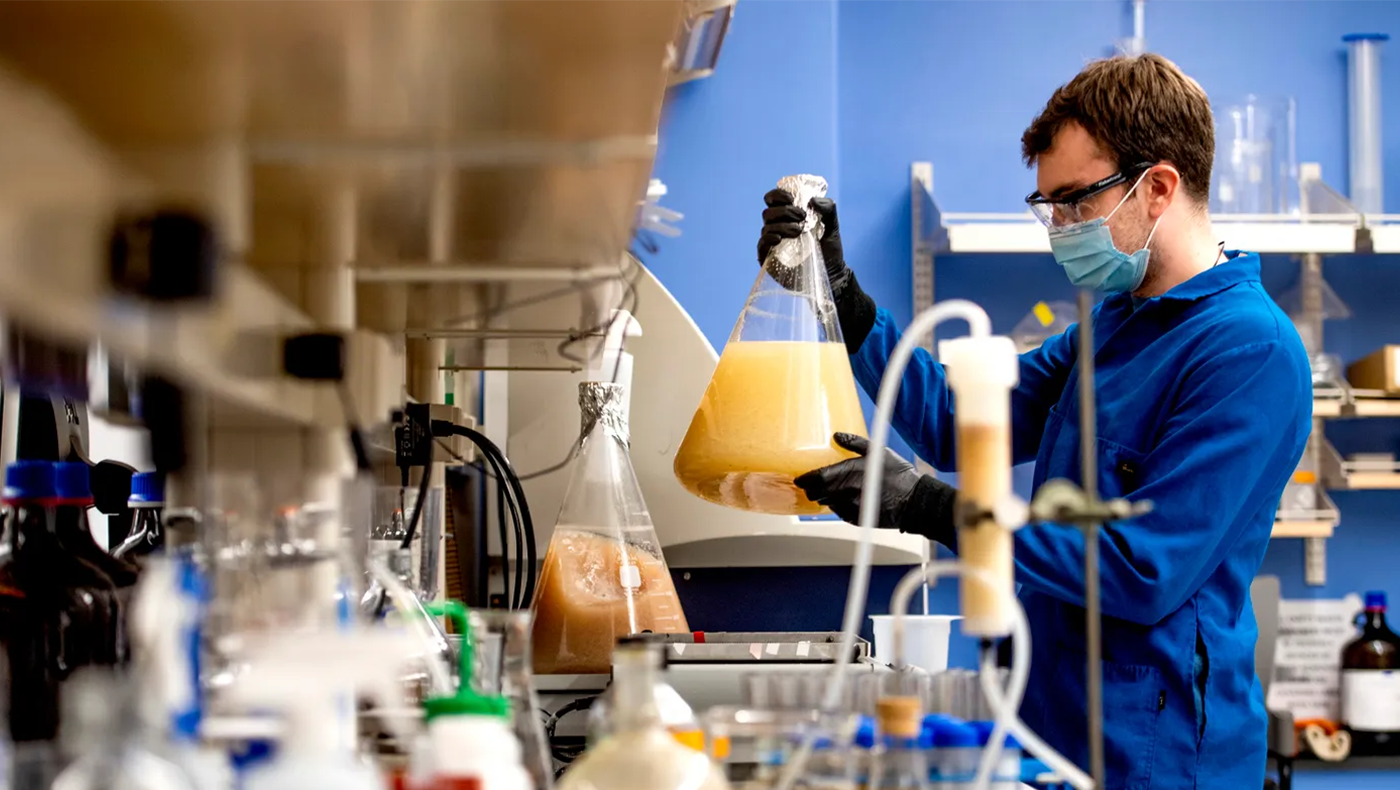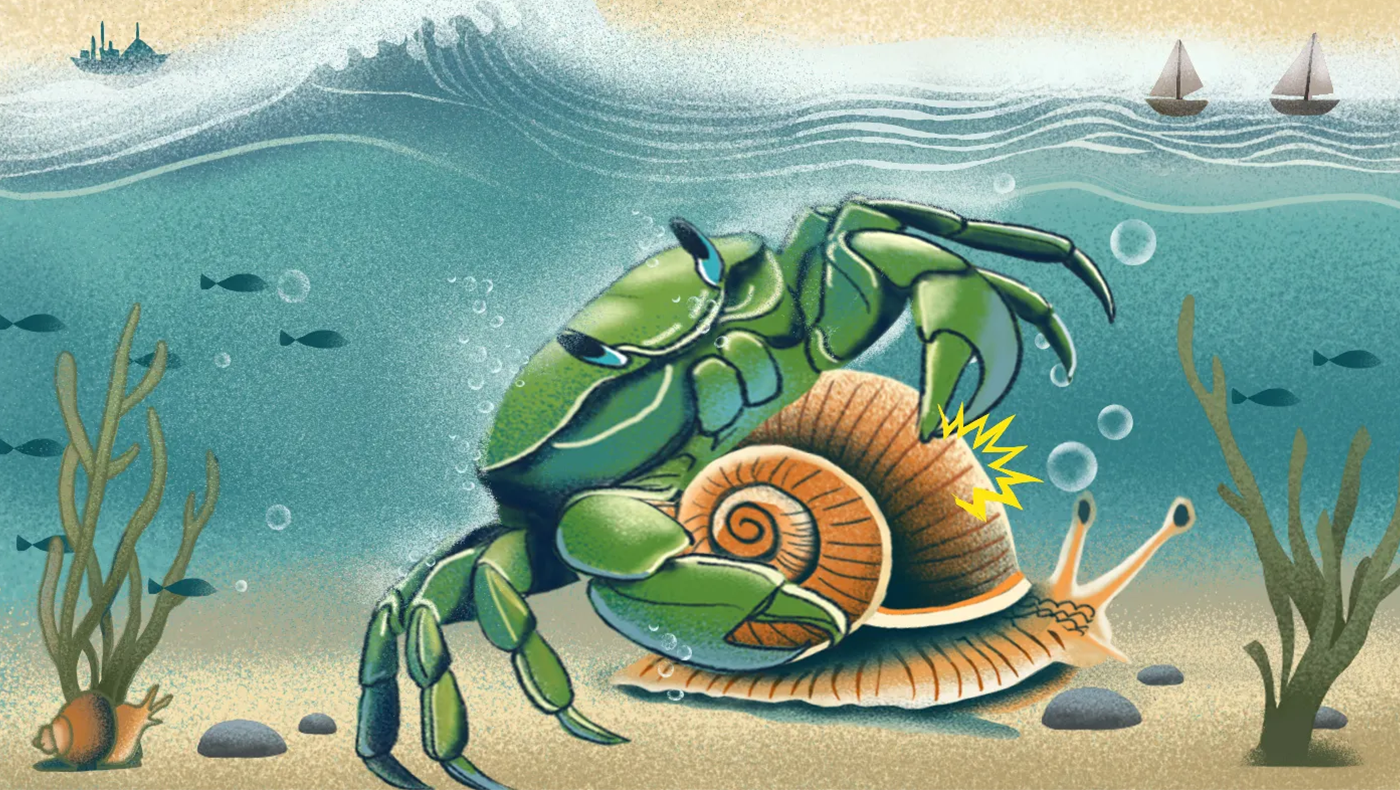COS News
News

A new report from a group of Northeastern researchers explores across disciplines how biotech can ensure safe, sustainable life beyond Earth.
The key to international space cooperation is developments in biotechnology, Northeastern researchers say
News

The NeuroPRISM lab, led by assistant psychology professor Stephanie Noble, makes tools that pave the way for reliable and reproducible neuroimaging of the brain.
Precise maps of the brain’s deepest corners are made possible through tools developed by these Northeastern researchers
Showing all results

This antibiotic is effective against anthrax, and has no detectable resistance, Northeastern research finds
Kim Lewis and Slava Epstein, Northeastern biology professors, developed an antibiotic over a decade ago that can now be used against anthrax.

What is causing autism rates to rise? And should we be concerned?
Northeastern researchers, Laurel Gabard-Durnam and Zhenghan Qi, provide some context to the rising rate of autism diagnoses, pointing out that the rate is not as concerning as it may seem.

What is a total lunar eclipse and how can you see the ‘Blood Worm Moon’? An astrophysicist explains
Northeastern assistant physics professor, Jacqueline McCleary, explains what an eclipse is and how to see that Blood Worm Moon this week.

Stand Up for Science
Let’s Stand Up for Science. And to do it, I want you (yes, you) to answer the question: ‘How have I benefitted from Science?” Give it a moment, and your answers will come tumbling in. They can start in the kitchen, where the coffee you just brewed and the cranberry bread you’re making for supper […]

Shells of their former selves: How sea snails have adapted to invasive predators
Geoffrey Trussell, a professor at NU's Marine Science Center, has been studying the evolution of two species of sea snails off the coast of Maine since the 1990's. In short: the snails have grown thicker shells!

Squid are some of nature’s best camouflagers. Researchers have a new explanation for why
Research from Leila Deravi, associate professor of chemistry and chemical biology, has brought light to how squids use organs to help power their camouflage abilities.

Patagonian ‘living rocks’ trace their origins to the beginning of life on Earth
Veronica Godoy-Carter, professor of Biology and Biochemistry, has sequenced the genome of a "living hill" or bacterial colony found in Patagonia.

The ‘dark matter’ of nutrition: How AI and network science are transforming our understanding of food and health
Albert-László Barabási, physics professor, is advocating for a mass project combining AI, mass spectrometry and network medicine to map the chemical makeup of the foods we consume.

Friends
This week, I passed by a new construction, and maybe the smell of the concrete took me far back, to our friends, the Fishers. Marie and Terry Fisher lived way out in the dry highveld grassland near Johannesburg. Theirs was the only house for miles and they had a windmill. Terry was building their house, room by […]

How a Northeastern science degree helped shape this energy CEO’s career in oil, gas and renewables
Steve Tedesco, COS alumni, is the CEO of Running Foxes Petroleum, a company that offers an alternative to finding locations for investors and companies to drill for oil.

Can you train your brain for better memory? This Northeastern study points to yes
Susanne Jaeggi, psychology professor, has new research that may help scientist understand how people's working memory can be improved.

Can psilocybin — the key ingredient in magic mushrooms — be the key to treating head injuries?
Craig Ferris, psychology professor, and colleagues have found that rats dosed with psilocybin after mild head injuries, were able to regain normal brain function.